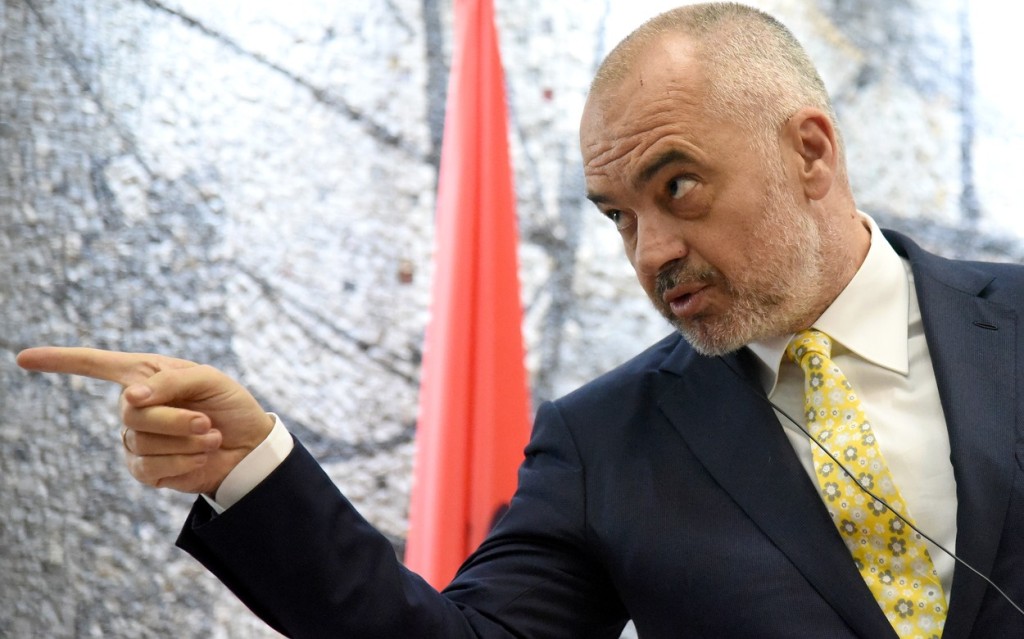
In a conference held by the “Friends of Europe” think-tank in the beginning of November in Brussels, the Prime Minister of Albania, Edi Rama, put forward an ultimatum of sorts, suggesting that “Albania is running out of patience with the EU’s stalling integration process.” And Rama went on to set a deadline, suggesting that if Albania does not begin accession talks by July 2018, Tirana will re-consider its political priorities and start working actively with other international actors.” Analysts interpreted that as prioritizing relations with Russia, China and Turkey.
“It is now exaggeration to suggest that the EU has provided a blueprint for reforms and has been the driving force of change in the Western Balkans and we remain committed to being a part of the EU family. However, I do not understand politicians that on the one hand advocate for a ‘united Europe’ and, on the other, demand from us to wait until internal challenges are resolved. If that is the case, we can look to China, Russia and Turkey for an alternative,” Rama said.
One hypothesis for why Rama is confrontational is that accession talks would provide a diversion from an unfolding drug-related corruption scandal, centered on his former Minister of Interior, Saimir Tahiri. Tahiri and his cousins – the Habilaj brothers – are being investigated by both Italian and Albanian authorities. Albanian authorities have issued an arrest warrant. Meanwhile, prosecutors in Catania, Italy, are raising new charges of forgery.
According to an Albanian MP who preferred to remain anonymous, “Tahiri’s days outside prison are numbered, but the real story is who is he going to draf down with him; Tahiri is already blackmailing the government.” Tahiri is now facing charges of involvement in manipulating the June 2017 electoral result; if that is true and he was invited to give evidence, his testimony could have a bearing on the government’s stability.
“Edi Rama’s strongest weapons are the deceit and propaganda” says the head of the opposition Lulzim Basha. He explains that the prime minister knows that the prospect of EU membership may be used to divert attention from a domestic scandal. And if Albania were to open accession negotiations in June 2018, public opinion could put aside the Tahiri case.
However, Albanian media is certain that the Tahiri scandal is only the top of the iceberg.
Prosecutors in both Catania, Italy, and Albania seem determined to pursue the Tahiri case. Only recently, the Albanian police arrested a 25-year old self-pronounced businessman, Orest Sota, with €863,000 in his vehicle and two boat licenses under the name of the former Minister Saimir Tahiri. If he were to disappear, a big problem of the Albanian government would disappear with him is the suggestion. But, in this particular instance, when the police confiscated Sota’s mobile phone, they discovered exchanged messages between Sota and Tahiri’s wife, discussing government tenders and deals.
Recent recordings of talks between the Habilaj brothers suggest they have purchased expensive diamond jewelry as presents for Tahiri’s wife and mother. New evidence is expected to become public soon. In addition, Rama’s government is trying to smoothen the Kelment Balili story. Government sources in Athens suggest that Balili – the biggest drug lord of Albania – had been evading arrest for many years in part due to the political support he enjoys at home.
“The entire state police is corrupt” alleges former Prime Minister Sali Berisha. Few weeks ago Albanian prosecutor issued arrest warrants for three former police directors: Sokol Bode, Jaeld Cela, and Gjergji Kohila. They are accused of drugs trafficking. All three police directors were appointed by the former Minister of Interior, Saimir Tahiri. But they fled the country before the arrest warrant was executed. Berisha stated that “PM Rama himself, along with Minister of Interior Fatmir Xhafa and the General Director of Police Haki Çako are protecting Albania’s lords of narcotics , the directors of narcotics, the so called barons of drugs with uniform; Kohela, Bode and Çela.”
After the Orgest Sota’s arrest, text messages were found between him and Jaeld Çela, uncovering the network of communication between Tahiri, Sota and Çela
Rama’s government faces one too many scandals. With criminal activity is at its peak and neighboring authorities intercepting boats with tons of Albanian cannabis, Greek and Italian authorities are alarmed. Albanian borders are less safe than expected from a NATO member state and security cooperation in anti-drug trafficking is less than optimal. In its December 2017 report, Europol concluded that: “Albania remains the main source of herbal cannabis trafficked to the EU.”
Conservative estimates suggest a €5bn turnover from drug trafficking in Albania, that is, approximately 50% of the country’s GDP. While the FBI is looking into money laundering in Albania, the country remains one of the poorest in Europe. While it is clear that Tirana is no closer to EU membership than years ago, expectations management matters.
The six upcoming months are decisive for the Albanian prime Minister, Edi Rama. If accession talks do not begin in June 2018, he may not be able to hold the lid on at least four more ministerial scandals, according to a high-ranking source within the Albanian Socialist Party. Geopolitical gambling is unlikely to serve Albanian interests, but Tirana is desperate for credibility and legitimacy that stems from foreign policy bravado. That is not the first time Brussels deals with this phenomenon in Southeastern Europe.




 ALB
ALB
 ENG
ENG
